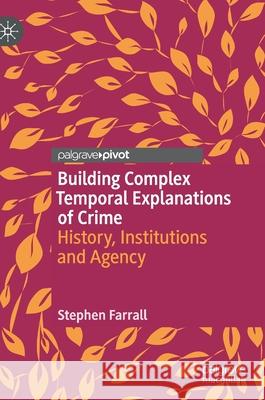Building Complex Temporal Explanations of Crime: History, Institutions and Agency » książka
topmenu
Building Complex Temporal Explanations of Crime: History, Institutions and Agency
ISBN-13: 9783030748296 / Angielski / Twarda / 2021 / 162 str.
Kategorie:
Kategorie BISAC:
Wydawca:
Palgrave MacMillan
Seria wydawnicza:
Język:
Angielski
ISBN-13:
9783030748296
Rok wydania:
2021
Wydanie:
2021
Numer serii:
000442017
Ilość stron:
162
Waga:
0.36 kg
Wymiary:
21.01 x 14.81 x 1.12
Oprawa:
Twarda
Wolumenów:
01
Dodatkowe informacje:
Glosariusz/słownik
Wydanie ilustrowane
Wydanie ilustrowane











